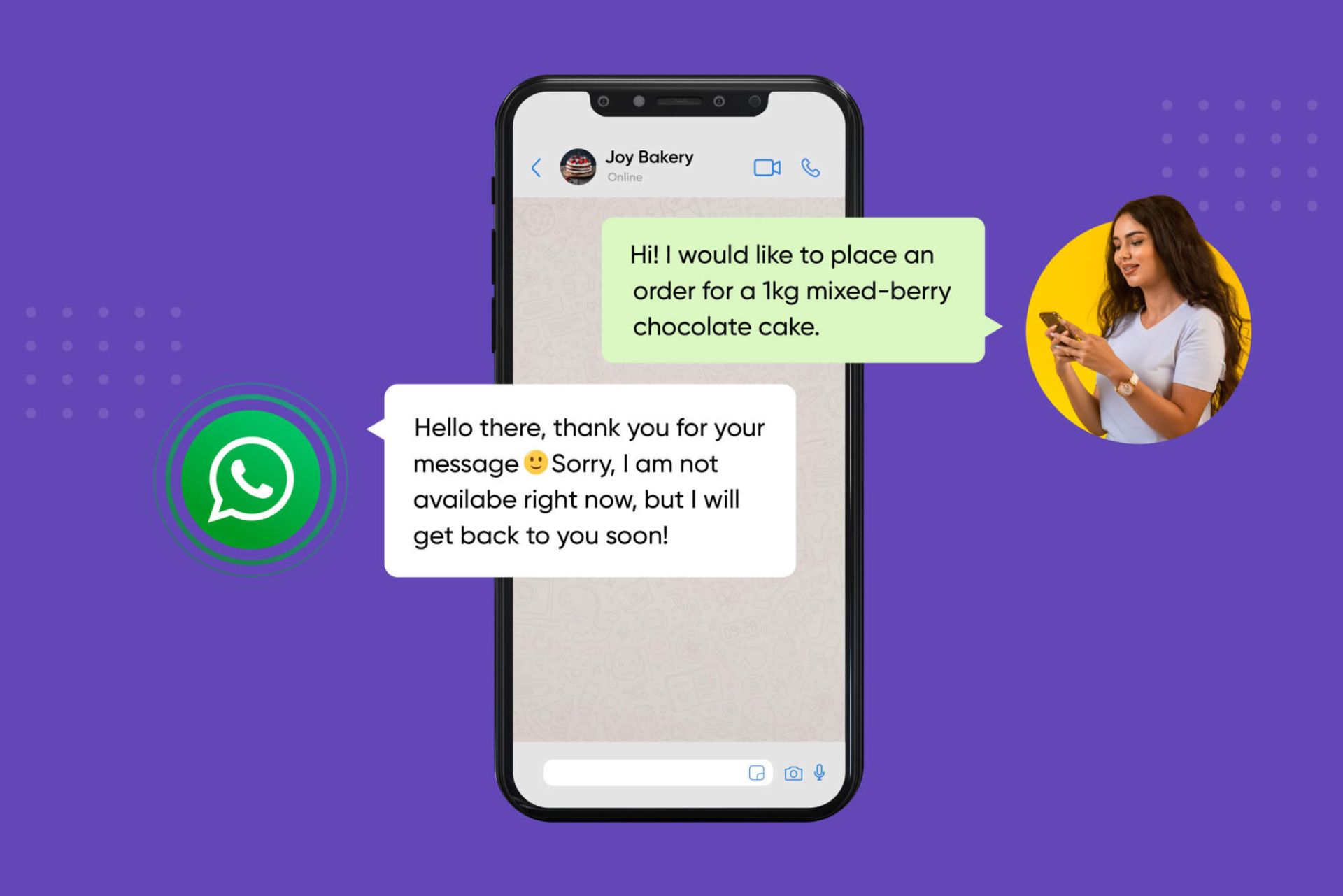#1 WhatsApp Automation Course with Certification
Classroom Training | Live Online Session
Learn WhatsApp automation to automate your business for sales by creating quick replies, setting up automated replies, or developing a chatbot, and eventually amplifying your skills with this online and offline WhatsApp automation course. Get familiar with all the concepts and strategies in this course.

1-on-1
Mentoring Sessions
Beginner
Course Level
Flexible Per Course
Timing
1000+
Students Trained
WhatsApp Automation Course Details
Industry-Relevant Curriculum
1:1 Mentoring Session with Expert Trainers
No Prior Experience/Knowledge required
Access to LMS
Dedicated Q&A Support & Doubt Solving Sessions
Practice Tests & Assignments
Get Brochure Now !
What Our Students Say
 “I enrolled for ProiDeators SEO, Social Media short-term certification courses. I am satisfied with this course and teaching. Also, I got all certificates from there for SEO & Social Media. I would totally recommend going for these short-term certification courses.”
“I enrolled for ProiDeators SEO, Social Media short-term certification courses. I am satisfied with this course and teaching. Also, I got all certificates from there for SEO & Social Media. I would totally recommend going for these short-term certification courses.”
– Pooja Yadav
Student of SEO & Social Media
 “Best short term course for Website Development & Google Analytics. Excellent institute for practical knowledge. It gives you quality as it promises. Specially the teachers are very good who teach with examples that make it easy to understand.” Best Digital Marketing Courses Institute.
“Best short term course for Website Development & Google Analytics. Excellent institute for practical knowledge. It gives you quality as it promises. Specially the teachers are very good who teach with examples that make it easy to understand.” Best Digital Marketing Courses Institute.
– Pratik Shirore
Student of Masters in Digital Marketing, India
WhatsApp Automation in Digital Marketing Training Courses at Thane, Mumbai – India
The term “WhatsApp automation” describes the application of software or tools that conducts various tasks and operations on the WhatsApp messaging system. It help utilising technology to improve WhatsApp user experiences, boost productivity, and expedite communications. It becomes easy to reach wider audience through automation and effective to send in a personalized massages. This save time and ensure effective interactions.
Here are some key aspects of WhatsApp automation:
Messaging Automation: Businesses can use WhatsApp automation to automate messaging processes including delivering personalised messages, greetings, order confirmations, appointment reminders, and notifications to consumers or clients. This saves time and guarantees consistency in communication.
Chatbots: Chatbots are automated conversational agents that can interact with users on WhatsApp. They can provide instant responses to frequently asked questions, handle customer inquiries, collect information, and guide users through predefined processes or workflows.
Broadcast Lists: It enables the creation of broadcast lists, which allow businesses to send messages to multiple recipients simultaneously. This is useful for sending updates, promotions, announcements, or other bulk messages to a targeted audience.
Customer Support: Automation can be used to automate customer support processes. Businesses can set up automated responses or routing systems to direct customer queries to the right department or representative, ensuring timely and efficient support.
Order Tracking and Notifications: E-commerce businesses can leverage WhatsApp automation to provide order tracking updates and notifications to customers. Automated messages can be triggered at different stages of the order process, such as order confirmation, shipping updates, and delivery notifications.
Appointment Reminders: Businesses in the service industry can automate appointment reminders to reduce no-shows. Automated messages can be set up to notify clients of forthcoming appointments, decreasing the need for manual follow-up.
Lead Generation: WhatsApp automation can be used to collect and manage leads. Businesses can set up automated processes to capture user information, qualify leads, and initiate follow-up actions.
Integration with CRM Systems: It can be integrated with Customer Relationship Management (CRM) systems. This enables businesses to synchronize customer data, track interactions, and automate workflows based on user actions or triggers.
Personalization: WhatsApp automation allows for personalization by dynamically inserting customer names, order details, or other relevant information into automated messages. This helps create a more personalized and engaging user experience.
Analytics and Reporting: It often provide analytics and reporting features, allowing businesses to track message delivery, response rates, user engagement, and other metrics. This data can be used to evaluate the effectiveness of WhatsApp automation campaigns and make data-driven decisions.
However automation feature can imperatively improvise communication process, boost customer’s experiences, and enhance operational efficiency for brands. Therefore it is crucial to ensure that automation is executed properly and creating a precise balance between human interaction and automated messages. Human interaction always provides a personalized and responsive customers experiences but sometimes tools does the proficient work and reduces the burden.
